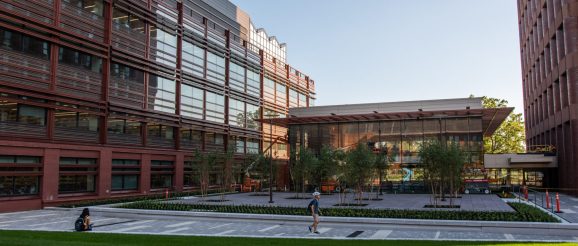Students and faculty prepare for Yale Africa Innovation Symposium – Yale Daily News

Lukas Flippo, Senior Photographer The Yale Africa Innovation Symposium will be held on Yale’s campus from March 1-2 with international speakers set to lead conversations on solutions to economic, governmental, technological, climate and gender equity issues within African countries and internationally. After the last symposium in November, the event has grown in scale with support from Yale faculty and students. The event also hosts new and returning speakers and introduces emergent case studies. Students from many other universities also plan to attend the symposium, talk to experts in their specialties and form cross-school interactions. Visiting students will be hosted by Yale students. “From the first symposium, the positive feedback we got, we just said, alright, we need to come back bigger and better for YAIS 2,” said Abi Ndikum ’25, founder and executive director of the symposium. Ndikum expressed gratitude for the support she and her team received that led them to continue developing the symposium. The first time the event was held, YAIS worked under the Yale Africa Student Association to hold the symposium around the same time the group’s Yale Africa Week was held. To spread both organizations’ efforts and successes throughout the year, Yale Africa Week is now held in the fall semester while YAIS is held in the spring semester. YAIS also receives support from Yale’s MacMillan Center Council on African Studies through input and financial sponsorship. While the YAIS committee works independently to organize the event, the council and other professionals on campus are happy to provide input into the event and support to “assist them to meet their objectives,” professor Cajetan Iheka, chair of the Council of African Studies, wrote to the News. Additionally, the symposium receives help from faculty participants, who hope to build strong relationships with visiting scholars and innovators. Ndikum spoke to the News about the importance of connecting current faculty with visiting scholars for academic and professional endeavors outside of the symposium. Faculty in adjacent fields of global strategy and international affairs, such as Steven Wilkinson, Janette Yarwood and Donald Filer, also plan to attend. “Too often, conversations about Africa center around what the continent lacks, such as resources or stability, instead of highlighting what we are and could be creating … It’s a refreshing approach that emphasizes Africa’s potential and allows for constructive dialogues about our progress and growth,” Modupe Karimi ’26, officer of outreach for YAIS, wrote to the News. Committee members and faculty spoke about their excitement about how YAIS could be used as an arena to show the success of innovators in Africa. The symposium’s mission focuses on tangible solutions, aiming to accomplish more than just identifying the problems in Africa’s professional fields through hands-on learning. To address such a need, YAIS holds “Innovation Labs” during the symposium. During these labs, attendants work on case studies with Africa’s foremost leaders in the field. Featured topics will include “Global Trends in Africa’s Creative Economy” with Gbarpolu County, Liberia, Sen. Amara Konneh and “Africa – The Last Digital Frontier,” with Angela Kyerematen-Jimoh, a Ghanaian business leader and Microsoft’s strategic partnership lead for Africa. Iheka hopes that these labs and the symposium serve as a space for students to ask challenging questions and learn from experts in their fields. Nana Ama Ocran ’26, President of the Yale Africa Students Association shares a similar sentiment, excited for attendees to “gain exposure to the innovative approaches used by experts” and for the opportunity to start creating connections with renowned professionals. YAIS holds a diverse list of speakers from various fields and African regions and countries. The Symposium itself will feature Ambassador Fatima K. Mohammed, permanent observer of the African Union to the United Nations, as its keynote speaker. The speaker list was selected through calls for nominations of last year’s speakers or through connections in the committee’s network. Ndikum said that her team sought innovators at the “forefront” of impact on Africa’s industries to lead both panels and labs. “The quality of our speakers that we are bringing this year, [is] really top of the bar, and it aligns with the mission of our conference because we want to bring young, bright minds and African innovators into one space together to work on case studies related to these innovator’s industries, to really equip participants with the skills and knowledge needed to move forward in development of the continent,” Ndikum said. The event will be held at the Yale Science Building and Kline Biology Tower, followed by a gala at the Omni Hotel.
